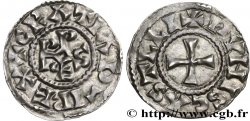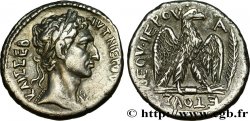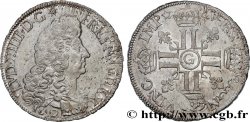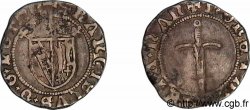v51_0052 - THRACE - BYZANTION Statère d’or
MONNAIES 51 (2011)
Starting price : 1 800.00 €
Estimate : 3 200.00 €
Realised price : 1 900.00 €
Number of bids : 2
Maximum bid : 2 600.00 €
Starting price : 1 800.00 €
Estimate : 3 200.00 €
Realised price : 1 900.00 €
Number of bids : 2
Maximum bid : 2 600.00 €
Type : Statère d’or
Date: c. 200-150 AC.
Mint name / Town : Thrace, Byzance
Metal : gold
Millesimal fineness : 1000 ‰
Diameter : 18 mm
Orientation dies : 11 h.
Weight : 8,55 g.
Rarity : R2
Emission: groupe 2 B
Coments on the condition:
Exemplaire de la qualité exceptionnelle pour ce type de monnayage sur un flan ovale, parfaitement centré des deux côtés. Portrait fantastique de très haut relief, bien venu à la frappe, légèrement stylisé. Merveilleux revers, finement détaillé. Jolie patine de collection. Conserve l’intégralité de son brillant de frappe et de son coupant d’origine
Catalogue references :
Predigree :
Cet exemplaire provient de la vente de la maison Palombo 9, 26 juin 2010, n° 12
Obverse
Obverse legend : ANÉPIGRAPHE.
Obverse description : Tête imberbe d'Alexandre le Grand sous les traits de Zeus-Ammon, cornu et diadémé à droite.
Reverse
Reverse description : Athéna nicéphore assise à gauche sur un trône, tenant une petite Niké de la main droite qui couronne le nom de Lysimaque et le coude gauche reposant sur un bouclier orné d'un masque de lion ; dans le champ à gauche, un monogramme, un autre sur le trône ; un trident tourné à gauche à l’exergue orné de deux minuscules dauphins.
Reverse legend : BASILEWS/ LUSIMCOU/ BU/ (KF)
Reverse translation : (du roi Lysimaque).
Commentary
Nous n’avons pas de liaison de coin pertinente pour ce type de monnayage. Ce type ressemble tout à fait à ceux que l’on rencontre entre 100 et 72 pour les ateliers de la Mer Noire et qui ont servi a financer Mithridates VI du Pont dans la région.







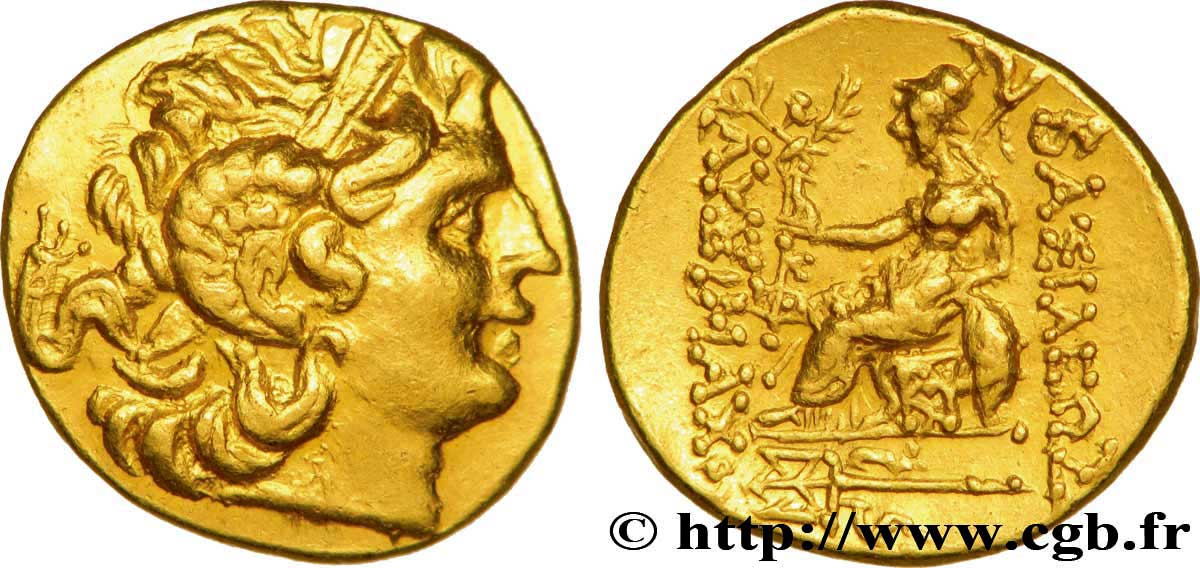
 Report a mistake
Report a mistake Print the page
Print the page Share my selection
Share my selection Ask a question
Ask a question Consign / sell
Consign / sell